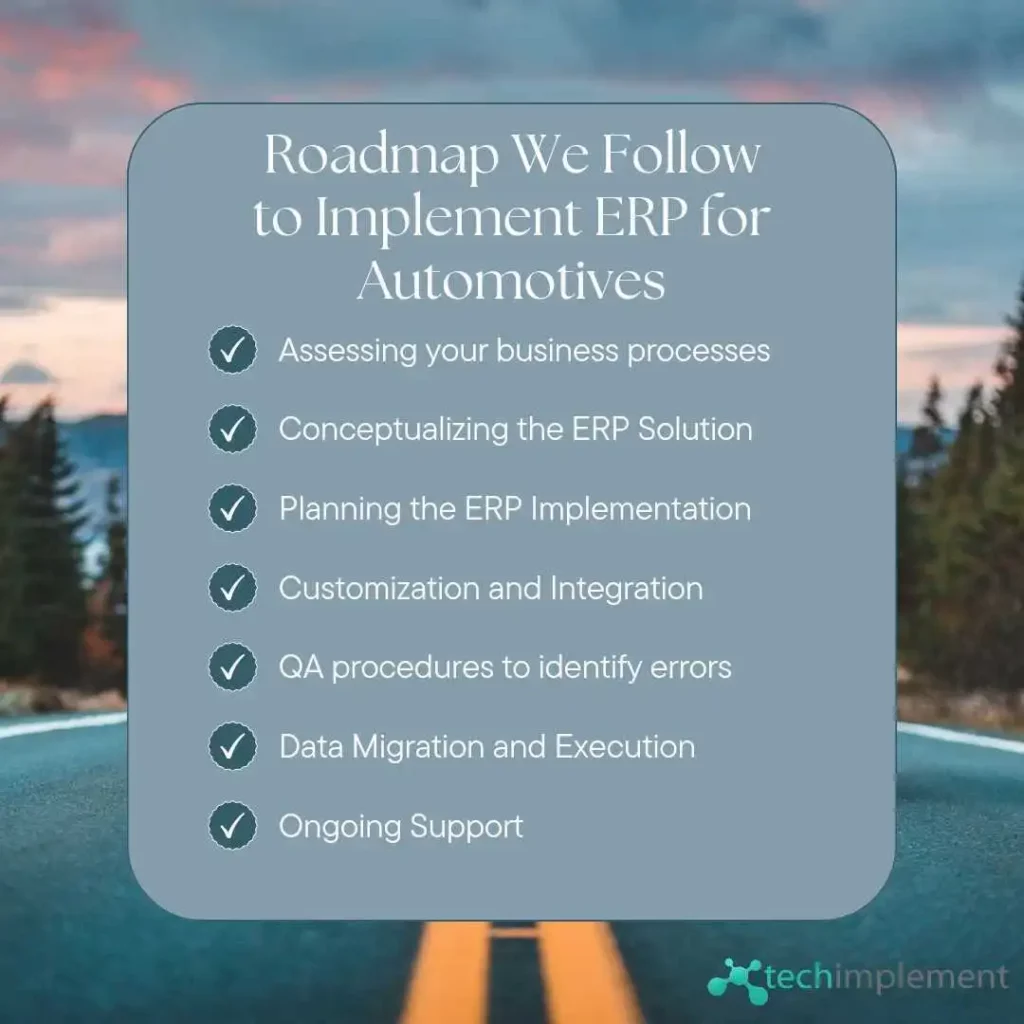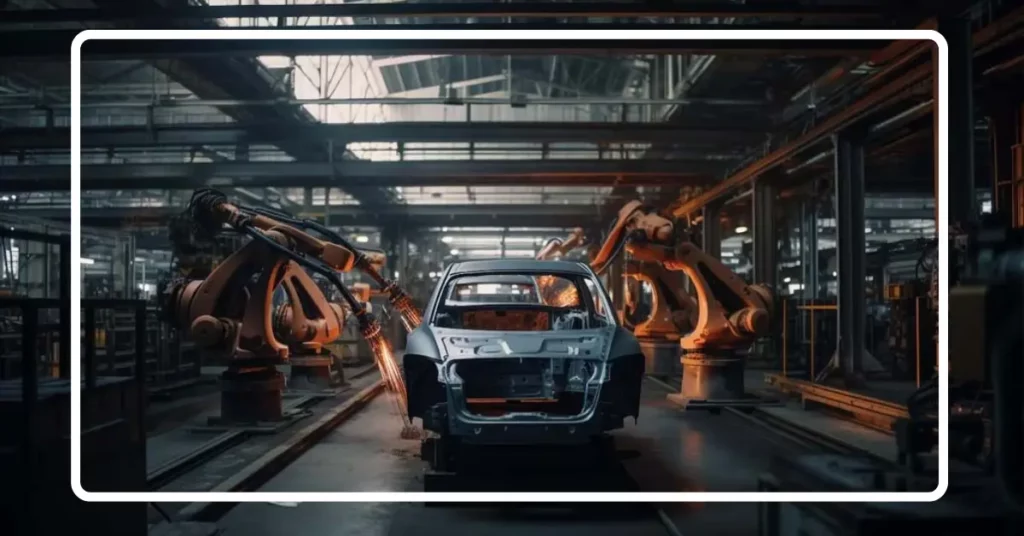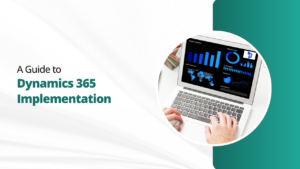If you’re a businessman in the automotive, you’ve probably heard the buzz about ERP systems. But what exactly is ERP, and how can it benefit your business? In this guide, we will break down ERP for the automotive industry in simple terms. So, fasten your seatbelt, and let’s take a ride through the world of ERP.
What is ERP for Automotive Industry?
ERP for automotive industry is like the GPS navigation system in your car. It’s a sophisticated tool that helps you steer your business in the right direction. ERP software integrates various business processes and functions into one centralized system. Imagine having all your vital data accessible from a single dashboard. That’s what ERP offers, making it easier to manage and grow your automotive business.
Why Do Automotive Businesses Need ERP?
In the fast-paced automotive industry, staying competitive is crucial. ERP empowers businesses by providing real-time insights and automation. It helps streamline operations, reduce manual errors, and improve efficiency. With ERP, you can make informed decisions and keep your business successful.
How to Choose the Right ERP Solution
Selecting the right ERP solution for your automotive business is like choosing the perfect car model. You need to consider your specific needs, budget, and scalability. Look for ERP systems designed for the automotive sector. It comes with industry-specific features and best practices.
Here are steps to help you select the right ERP solution:
1. Define Your Objectives and Needs:
Begin by defining your business objectives and what you aim to achieve with an ERP system. Identify the specific problems or challenges you want to address.
2. Involve Key Stakeholders:
Include representatives from various departments in your organization. Ask finance, HR, operations, and IT department to gather their input and requirements. Their perspectives are crucial for a successful implementation.
3. Budget Considerations:
Determine your budget for the ERP project. Include both upfront costs and ongoing expenses. Be realistic about what you can afford.
4. Deployment Options:
Decide whether you want an on-premises, cloud-based, or hybrid ERP system. Each has its advantages and drawbacks. Cloud-based solutions are becoming more popular due to their flexibility and cost-effectiveness.
5. Functionality and Features:
Create a detailed list of the features and functionalities you need. This includes modules for finance, inventory management, HR, and any other specific needs.
6. Vendor Research:
Research ERP vendors and their reputations. Look for vendors with a track record of successful implementations and ongoing support.
7. Request for Proposals (RFPs):
Create an RFP that outlines your requirements, and send it to potential ERP vendors. This will help you compare different solutions and their costs.
8. Integration Capabilities:
Consider how well the ERP system can integrate with your existing systems. Seamless integration can save time and reduce errors.
9. Data Security and Compliance:
Ensure that the ERP complies with data security standards relevant to your industry. Data breaches can be costly and damaging.
10. User-Friendliness and Maintenance:
The system should be user-friendly. Training your staff to use it should not be complicated. Inquire about the vendor’s support and maintenance services.
Implement ERP in Your Automotive Business
Implementing ERP is a journey, not a destination. It involves careful planning, training, and customization. Take small steps, involve your team, and transition to ERP. The effort invested upfront will pay off in the long run.
Benefits of using ERP for Automotive Business
ERP systems offer several significant benefits to the automotive industry. It is complex and relies on efficient management of resources, processes, and data. Here are some key advantages of using ERP for automotive industries:
Improved Operational Efficiency:
ERP streamlines and integrates various business processes, from manufacturing to supply chain management. This leads to improved efficiency by reducing manual data entry and minimizing errors.
Enhanced Visibility and Transparency:
ERP provides real-time data and insights into all aspects of the automotive business. It allows better visibility into inventory levels, production schedules, sales, and financial data. This transparency aids in informed decision-making.
Inventory Optimization:
ERP systems help in managing inventory by providing accurate demand forecasts. This prevents overstocking or understocking of parts and reduces carrying costs.
Quality Control and Traceability:
ERP solutions enable quality control processes to be integrated into the production cycle. Traceability features help track the origin of components and materials. This makes it easier to identify and address quality issues.
Streamlined Manufacturing Processes:
ERP systems optimize manufacturing operations by automating workflows and monitoring equipment maintenance. This results in reduced lead times, increased production throughput, and improved product quality.
Supply Chain Management:
Automotive ERP systems facilitate better supplier relationships, supply chain visibility, and demand forecasting. This helps in reducing supply chain disruptions and ensures timely delivery of materials.
Cost Control:
ERP tools provide cost control mechanisms by tracking expenses and analyzing production costs. This helps automotive companies maintain profitability in a competitive market.
Regulatory Compliance:
The automotive industry is subject to various regulatory requirements and standards. ERP systems can help ensure compliance by automating data collection and reporting processes.
The Future of ERP in the Automotive Industry
The road ahead for ERP in the automotive industry is exciting. As technology continues to advance, ERP systems will become even more capable. Machine learning and Artificial Intelligence will further enhance its efficiency.
How Techimplement Helps in Implementing ERP for Automotive Industry
Techimplement is your trusted partner in implementing ERP solutions for the automotive industry. We have industry-centric expertise, customization capabilities, and in-depth knowledge of automotive processes. Our solutions are designed to optimize manufacturing and streamline supply chain management. By choosing Techimplement, you’re choosing a partner committed to helping your automotive business.
Roadmap We Follow:
Here is our Roadmap:

1. Business Analysis:
The first step is to assess your business processes and current infrastructure, define requirements, and outline the ERP solution’s functional scope.
2. Design and Technology Selection:
Building on the analysis findings, we conceptualize the ERP solution and specify integration needs.
3. Project Planning:
Next, we plan the ERP implementation, setting project timelines, key phases, deliverables, resource allocation, change management strategies, and budget considerations.
4. Customization:
Using the earlier-defined scope, our development team initiates customization and seamless ERP integration.
5. Quality Assurance:
We establish quality assurance procedures to identify malfunctions. It includes UI/UX issues, security vulnerabilities, and data quality concerns within the ERP system.
6. Deployment:
We execute ERP deployment to the production environment. It is accompanied by data migration to transfer corporate data to the ERP platform. User training and onboarding are also conducted at this stage.
7. Ongoing Support:
Following the ERP software’s launch, our team provides ongoing support. We address performance issues, troubleshoot bugs, and optimize data flows as needed.
Conclusion
ERP for automotive industry is like a machine that keeps your business running. It streamlines operations, boosts efficiency, and empowers you to make informed decisions. Choosing the right ERP solution, implementing it, and embracing it as a vital tool for growth will set your automotive business on the path to success.




